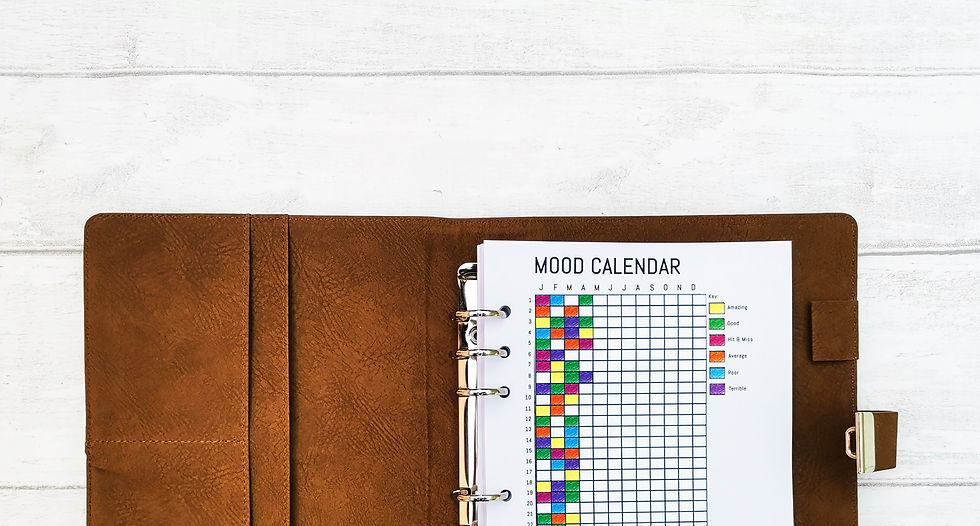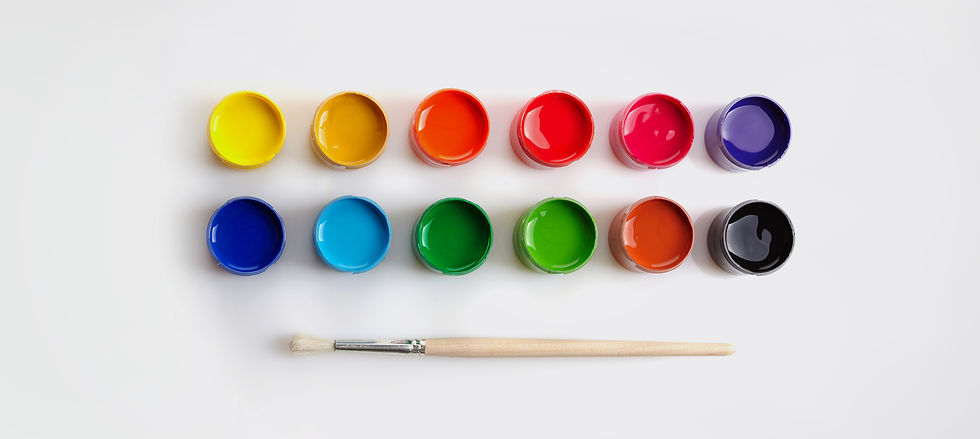Mental Health Lessons from Winnie the Pooh
- Discovery Journal

- Feb 17, 2024
- 5 min read
What if the simple wisdom of Winnie the Pooh could teach us how to take better care of our mental health? While this “silly old bear” and his friends live in a whimsical Hundred Acre Wood, their adventures highlight timeless lessons about mindfulness, emotional well-being, friendship, and self-care.
In today’s busy, often stressful world, revisiting these gentle stories reminds us of the importance of slowing down, accepting our emotions, and leaning on others for support. Let’s explore the surprising mental health lessons we can learn from Winnie the Pooh and how we can apply them in everyday life.
Winnie the Pooh: An eating disorder, and attention deficit hyperactivity disorder (ADHD), meaning it is very hard to focus, he also has impulsivity with obsessive fixations.
Piglet: Generalised Anxiety Disorder. The theory states that he may have suffered from an injury that crippled his self-esteem and that his stuttering problem most likely developed from said injury.
Owl: Dyslexia and Short-Term Memory Loss. Even though he’s shown as being exceptionally bright, it’s shown that he has trouble reading. An example would be in Pooh’s Grand Adventure when he mistook the word school for “skull.” Also, Owl tends to forget things as quickly as he says them.
Tigger: ADHD. Tigger is always seen bouncing and can never stay in one place for a long period.
Kanga: Social Anxiety Disorder. She is very overprotective of her son, and she would never let her son make his own decisions because of her overprotectiveness.
Roo: Autism. He lacks awareness of danger and has an attachment to sitting in his mother’s pouch.
Rabbit: Obsessive-compulsive disorder (OCD). He is very orderly and obsessive, and the theory also questions his sexual orientation due to his feminine behaviour.
Eeyore: Depressive Disorder. He always has a bleak outlook on life and never feels any positive emotions like happiness and excitement.
Christopher Robin: Schizophrenia. It is believed that all the characters from above are manifested depending on Christopher’s mood.
There have been lots of discussions since the original report, but it's important to consider the great things we can learn from the stories of Winnie the Pooh and his friends. Instead of focusing on the detrimental effects of each of these illnesses and "ruined" childhoods, these stories also provide us with insights into managing these illnesses and how friendship can overcome them.
The Power of Mindfulness
"Weeds are flowers too, once you get to know them."

Pooh has a gift for living in the present moment. Whether he’s enjoying a pot of honey or simply sitting with friends, he shows us the value of mindfulness for mental health.
Mindfulness means paying attention to what’s happening right now, without judgment. Research shows that mindfulness can:
Reduce stress and anxiety
Improve focus and concentration
Enhance self-awareness
Build resilience against life’s challenges
How to practice mindfulness daily:
Take a few deep breaths before starting your day
Go for a mindful walk, noticing sights and sounds around you
Pause and savour meals instead of rushing
Try journaling mindfully to reflect on your thoughts and feelings
The Acceptance of Emotions
"The things that make me different are the things that make me me."

Pooh and his friends express a wide range of emotions: Piglet often feels anxious, Eeyore can seem low, and Tigger is bursting with energy. Instead of ignoring these feelings, the stories normalise them.
In real life, accepting emotions is key to good mental health. When we label emotions as “bad,” we often push them away, but this can make them stronger. Instead, try:
Naming what you feel (“I feel anxious” rather than “I am anxious”)
Writing emotions down to create space from them
Allowing yourself to feel without self-criticism
By practising emotional acceptance, we learn that feelings are temporary and that experiencing them doesn’t define us.

The Discovery Journal’s emotive language box helps users expand their emotional vocabulary, making it easier to identify and understand feelings healthily.
We have become far too accustomed to explaining how we feel by using terms such as "tired" or "stressed". For some reason, we have become used to thinking other people simply don't care or can't be bothered with anything more complex or detailed. This is exactly why, at the beginning of every Discovery Journal entry, there is an emotive language box. This box is designed to help the user understand the emotion they are feeling, with the correct terminology! By practising the art of identifying emotions, we become more unashamed to voice them.
The Value of Friendship
"Any day spent with you is my favourite day, so today is my new favourite day."
The Hundred Acre Wood is built on friendship. Pooh, Piglet, Tigger, and the others demonstrate loyalty, kindness, and acceptance, qualities that also support mental health and well-being.
Friendship benefits mental health by:
Providing comfort and companionship
Reducing stress and loneliness
Increasing self-esteem and confidence
Offering practical support during difficult times
Research shows that strong social connections are linked to lower levels of anxiety and depression. Like Pooh and his friends, we all need people who will listen, encourage, and simply be there. The Discovery Journal can help you reflect on the relationships in your own life. By analysing interactions, you begin to see whether certain people leave you feeling supported or drained. Over time, journaling builds a clear picture of which friendships genuinely nurture your wellbeing and which may be holding you back. This insight helps you prioritise connections that strengthen recovery and growth.
The Importance of Self-Care
"I don't feel very much like Pooh today," said Pooh
"There, there," said Piglet ", I'll bring you tea and honey until you do"

Even in the stories, Pooh reminds us that simple acts of self-care matter. Taking time to rest, eat well, or enjoy small pleasures is essential for maintaining mental health.
Self-care doesn’t have to mean big changes; it can be as simple as:
Taking a short break during work
Practising a relaxing hobby
Saying “no” when you need to protect your energy
Creating a bedtime routine for better sleep
It’s also important to remember that self-care isn’t always about bubble baths and long walks. True self-care means giving yourself what you need in that moment, whether that’s a night out with friends, a pizza and TV binge, or some quiet solitude. By recognising self-care as a personal, flexible practice rather than a rigid ideal, we empower ourselves to meet our needs authentically.
Winnie the Pooh’s world offers timeless reminders that can support our mental health today: be mindful, accept your emotions, nurture your friendships, and care for yourself in ways that truly serve you. When we carry these lessons into our own lives, we move closer to a calmer, kinder, and more resilient way of living.

$50
Product Title
Product Details goes here with the simple product description and more information can be seen by clicking the see more button. Product Details goes here with the simple product description and more information can be seen by clicking the see more button

$50
Product Title
Product Details goes here with the simple product description and more information can be seen by clicking the see more button. Product Details goes here with the simple product description and more information can be seen by clicking the see more button.

$50
Product Title
Product Details goes here with the simple product description and more information can be seen by clicking the see more button. Product Details goes here with the simple product description and more information can be seen by clicking the see more button.




Comments